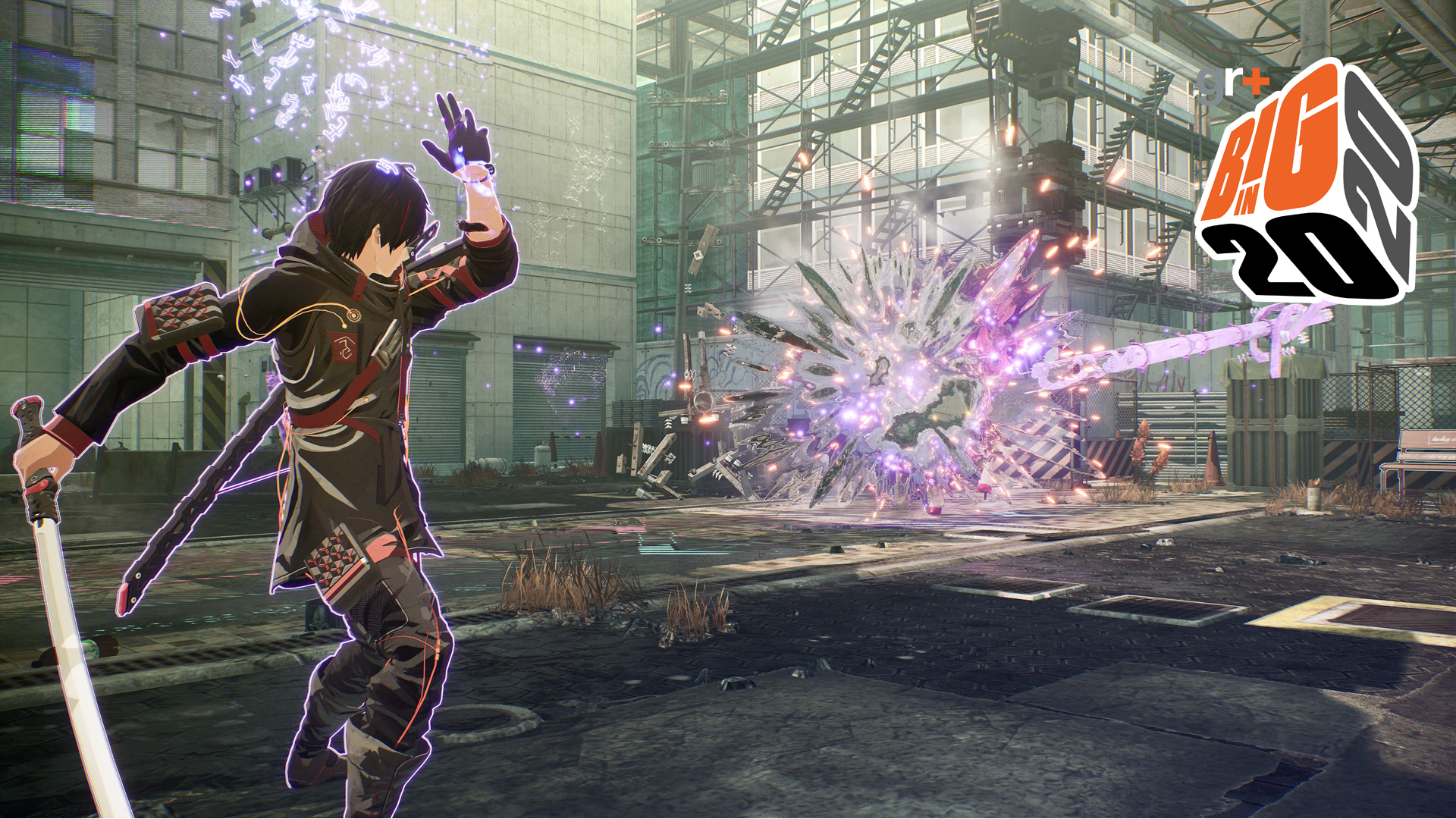
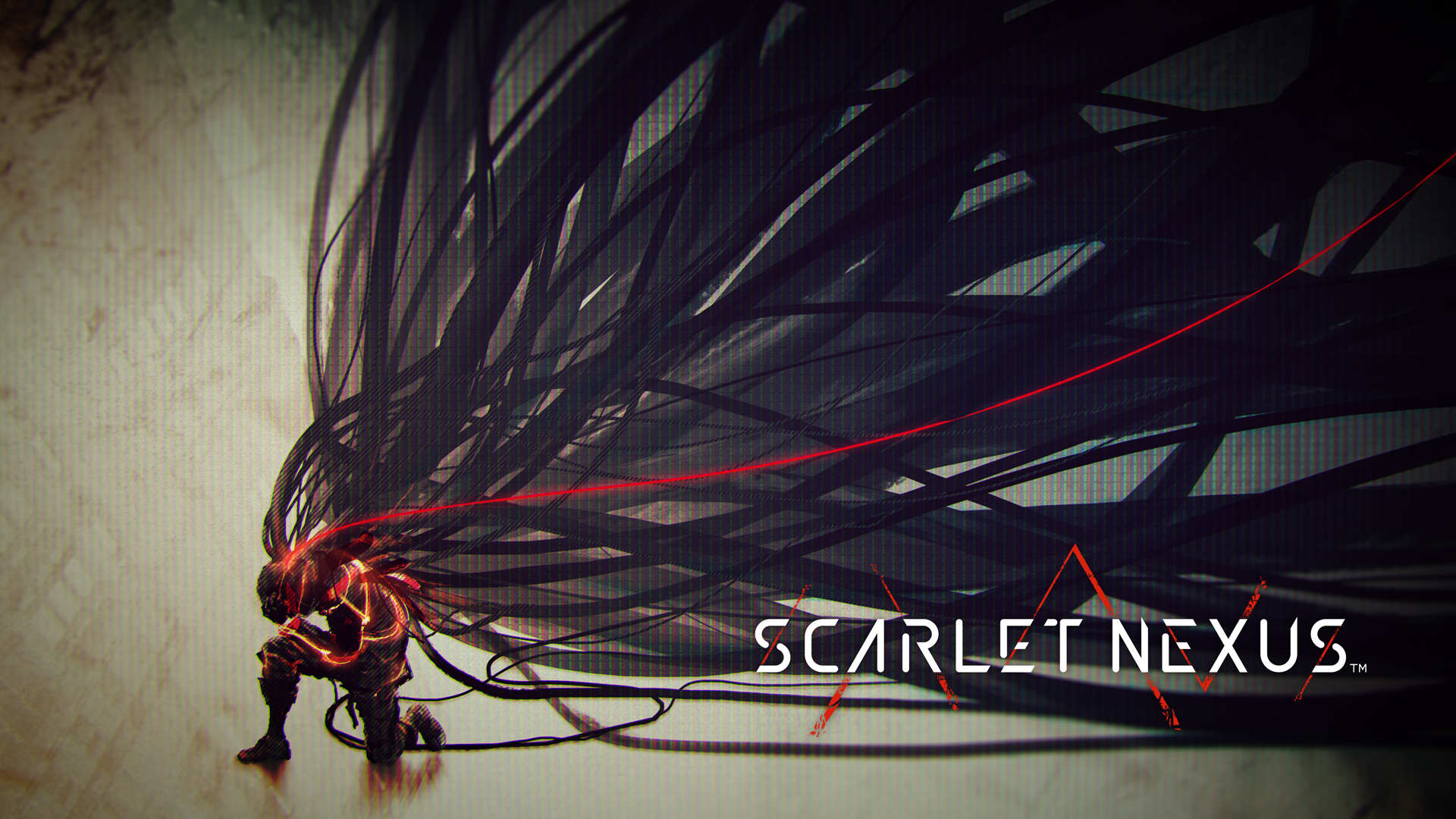
Game Scarlet Nexus
Developer Bandai Namco Studios
Publisher Bandai Namco
Platforms PS5, Xbox Series X, PC
Release TBC 2020
Scarlet Nexus is what you get when a group of veteran game designers are given the resources to turn a fantasy into a reality. Led by former members of the acclaimed team behind the 'Tales of' series, Scarlet Nexus is an action-RPG arriving with a futuristic aesthetic, flashy real-time combat, and a high-concept science-fiction story. If that weren't enough, it's also being treated as an opportunity for Bandai Namco Studios to reframe how the world views its RPGs.
Game director Kenji Anabuki tells me that the shift away from a fantasy aesthetic – the kind that helped to define games such as Tales of Vesperia, Abyss, and Symphonia – is something the studio has been considering for a long time now. "We have been thinking of using 'superpowers' as one of the main angles of a game, which we have never used before. In fantasy games we can use 'magic', but to fit into a more futuristic setting we decided to use superpowers," says Anabuki. "We want players to perceive the game as a completely new series."
The power of the mind
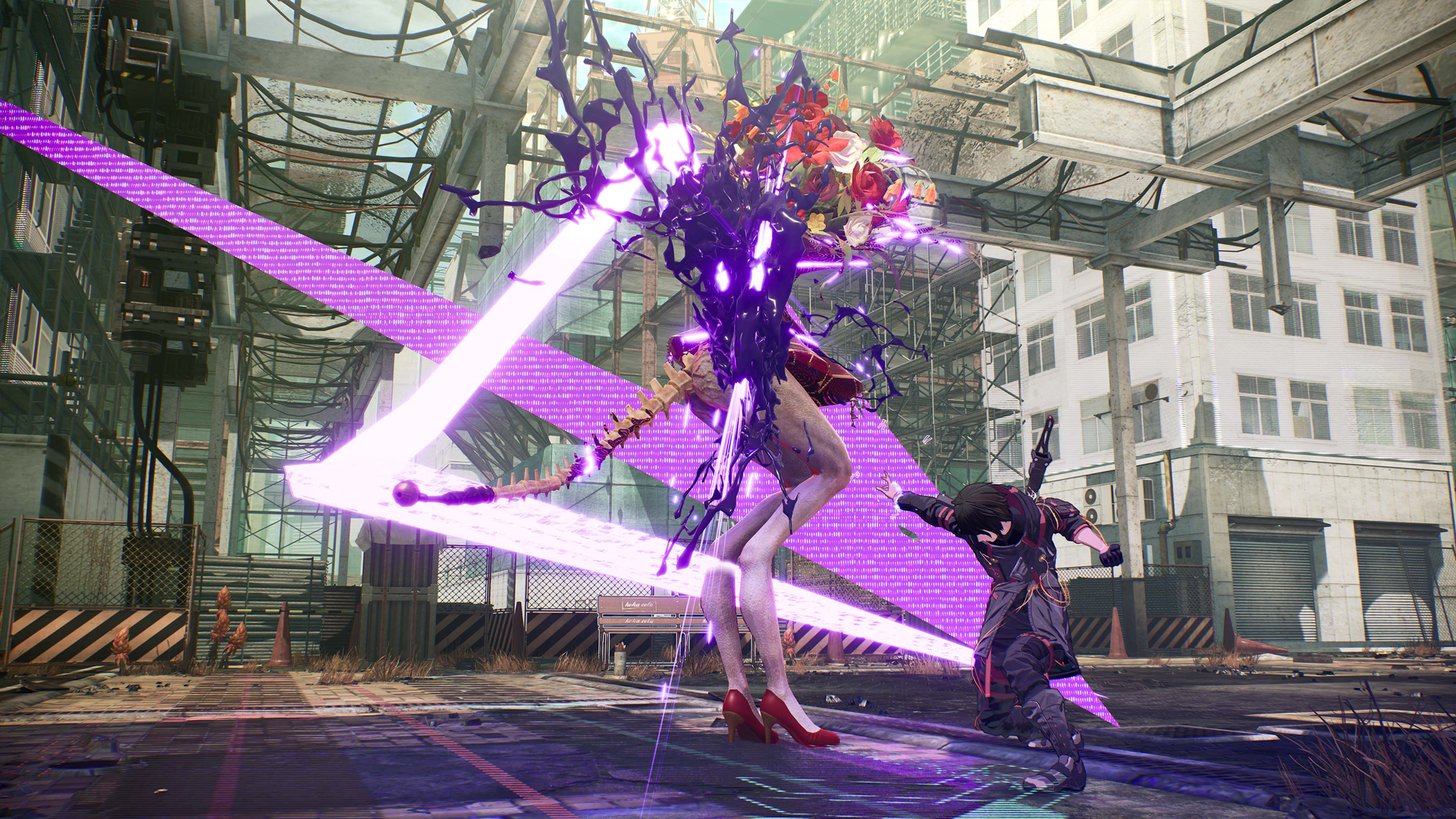
Powers or no, there's little chance fans are going to confuse Scarlet Nexus for anything else in the Bandai Namco roster, let alone a new entry to the Tales of series. Set in a distant and visually vibrant city of New Himuka, Scarlet Nexus will throw you into a futurist Japanese landscape inspired as much by western science fiction as it is classic anime. Oh, and it's also undeniably weird.
"Scarlet Nexus takes place in a world where the power of the brain is very much developed," Anabuki explains. "In our current world, people use their fingers and voices to interact with various technological devices, but in Scarlet Nexus people use their brains to control them. For example, the hologram-like advertisements and banners appearing on the streets are actually information directly transferred and projected into people’s brains."
As you may have gathered by now, all is not as it seems in New Himuka. Scarlet Nexus is set in an era where a psionic hormone has been discovered in the human brain that grants people extra-sensory powers. Just as humanity is beginning to wrestle with its new found abilities, a wave of mutants, the Others, descends upon the Earth with a thirst for human brains – only the minds of living organisms can calm their existential madness.
Scarlet Nexus is set in what Bandai Namco Studios is calling a "Brain Punk future", an era in which humanity is caught between technology, psychic abilities, and an otherworldly threat resistant to conventional forms of attack. As a result, those with "acute extra-sensory abilities, known as psionics" are called up to fight by the Other Suppression Force. You'll take on the role of Yuito Sumeragi in this sprawling RPG, a young recruit with a talent for psychokinesis – you know, the ability to hurl objects with the power of his mind.
The world is your weapon
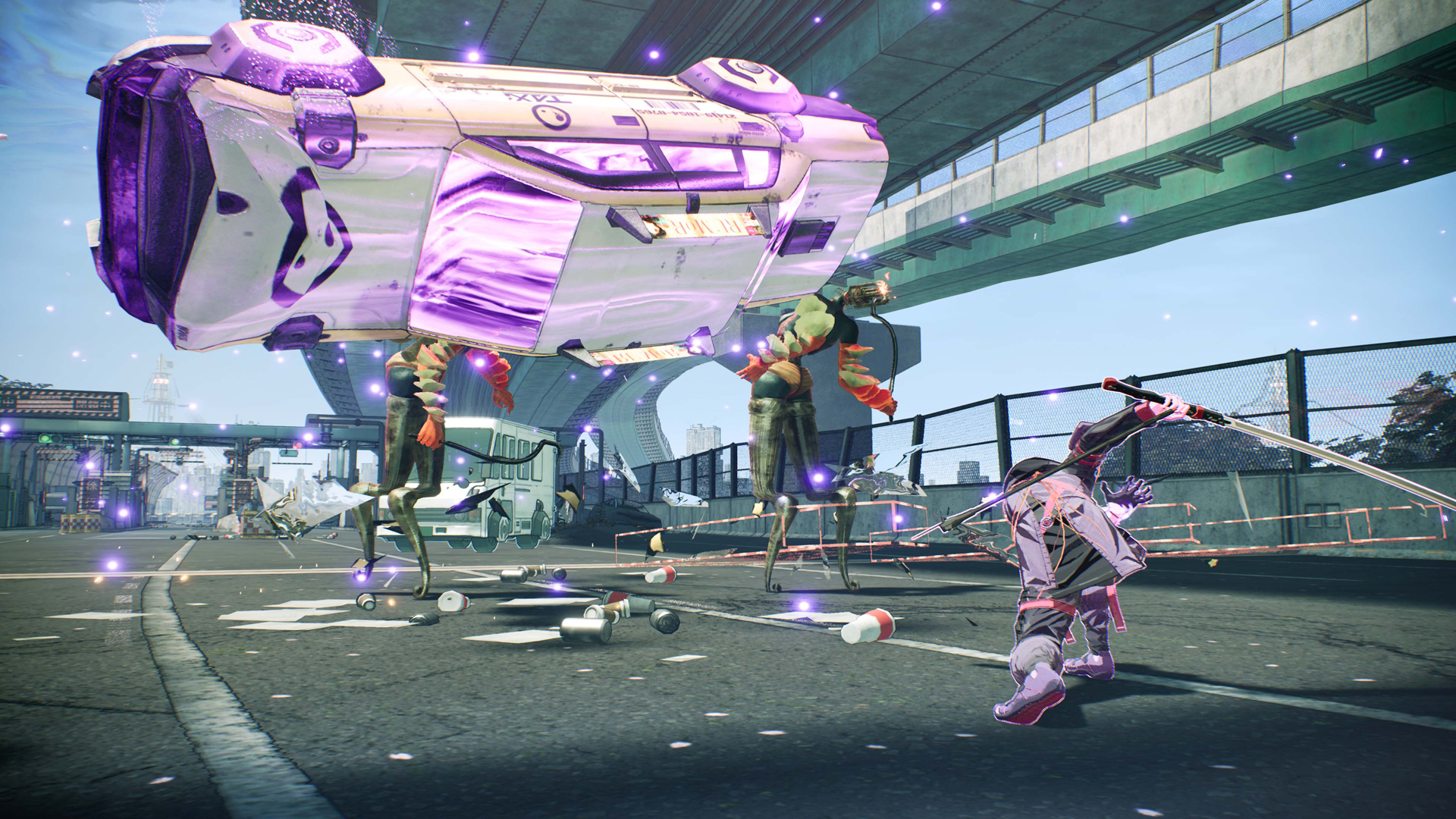
It's here where the Bandai Namco Studios is putting much of its time and energy. The development team is leveraging its experience of working on iconic RPGs like Tales of Vesperia, but Anabuki stresses that it's working to create something faster and heavier, a spectacle of otherworldly abilities.
Weekly digests, tales from the communities you love, and more
"Both games are RPGs with action elements, which enabled us to use our game development experience on Tales of series into Scarlet Nexus. For instance, it has an impact on the way we envision the battle system, the character development, the progression, and the balance between the story and the gameplay."
As Yuito, you'll be able to turn the world itself into a weapon. Elements of the environment can be lifted up and broken apart, launched at enemies to build attack combos and crowd-control mutant hordes. It's a slick looking system, where everyday objects – telephone poles, postboxes, cars, a moving train – can be wielded with precision and ease, integrated directly into your attack patterns and routines without overwhelming you with inputs or meters. It looks world's apart from the Tales of games, not to mention more recent action-RPGs from the studio's back catalogue, like Code Vein.
Anabuki tells me that the team had two core areas of focus as it worked to establish this battle system. "The first one is the psychokinesis experience derived from Yuito’s power. To be specific, when picking up objects, the button hold time depends on the weight of the object. For certain objects, the button controls synchronize to the object's movement. The motion used while picking up objects depends on the respective location. We are very committed to give players a sense of reality when they fight with psychokinesis during battles."
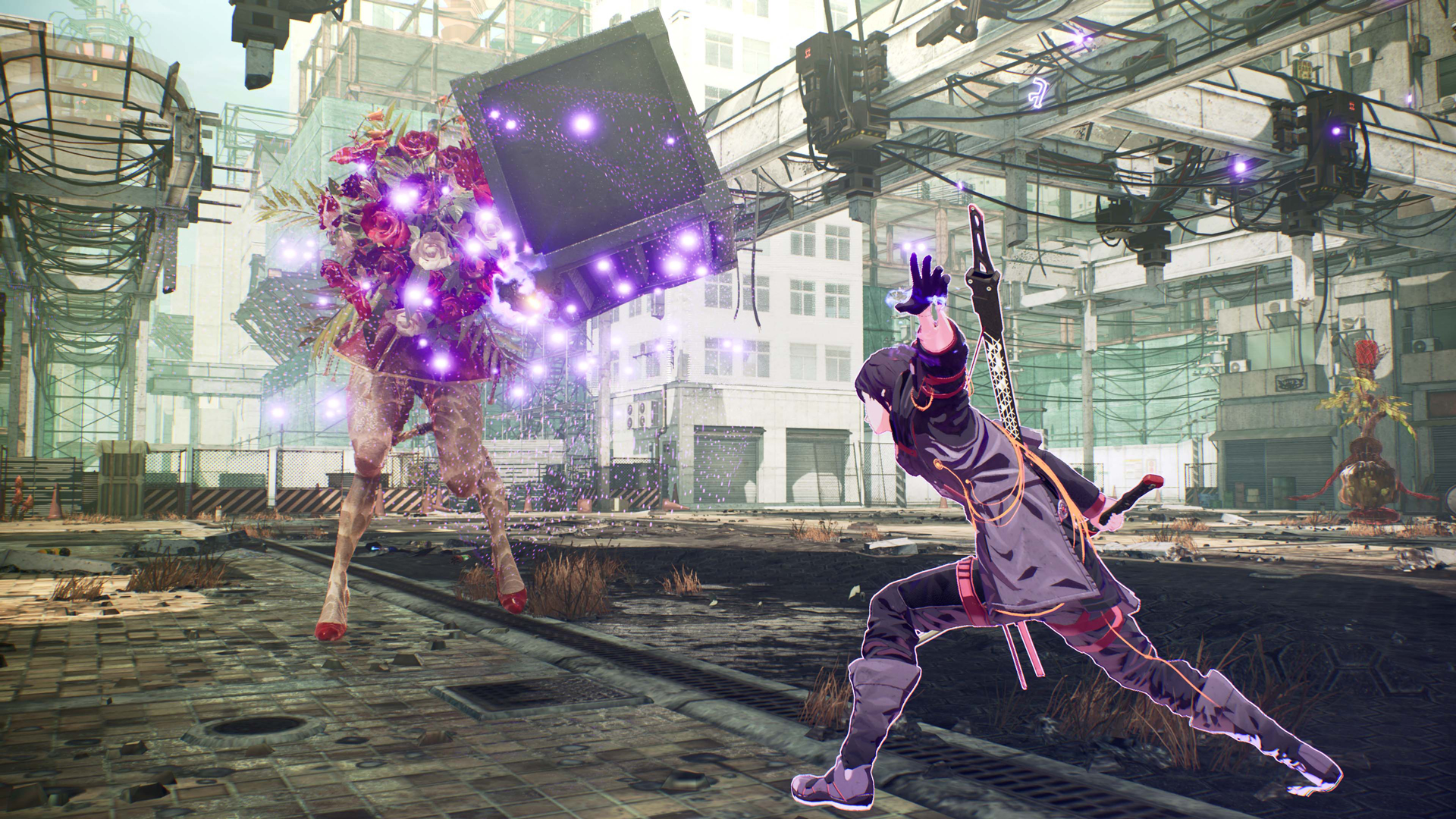
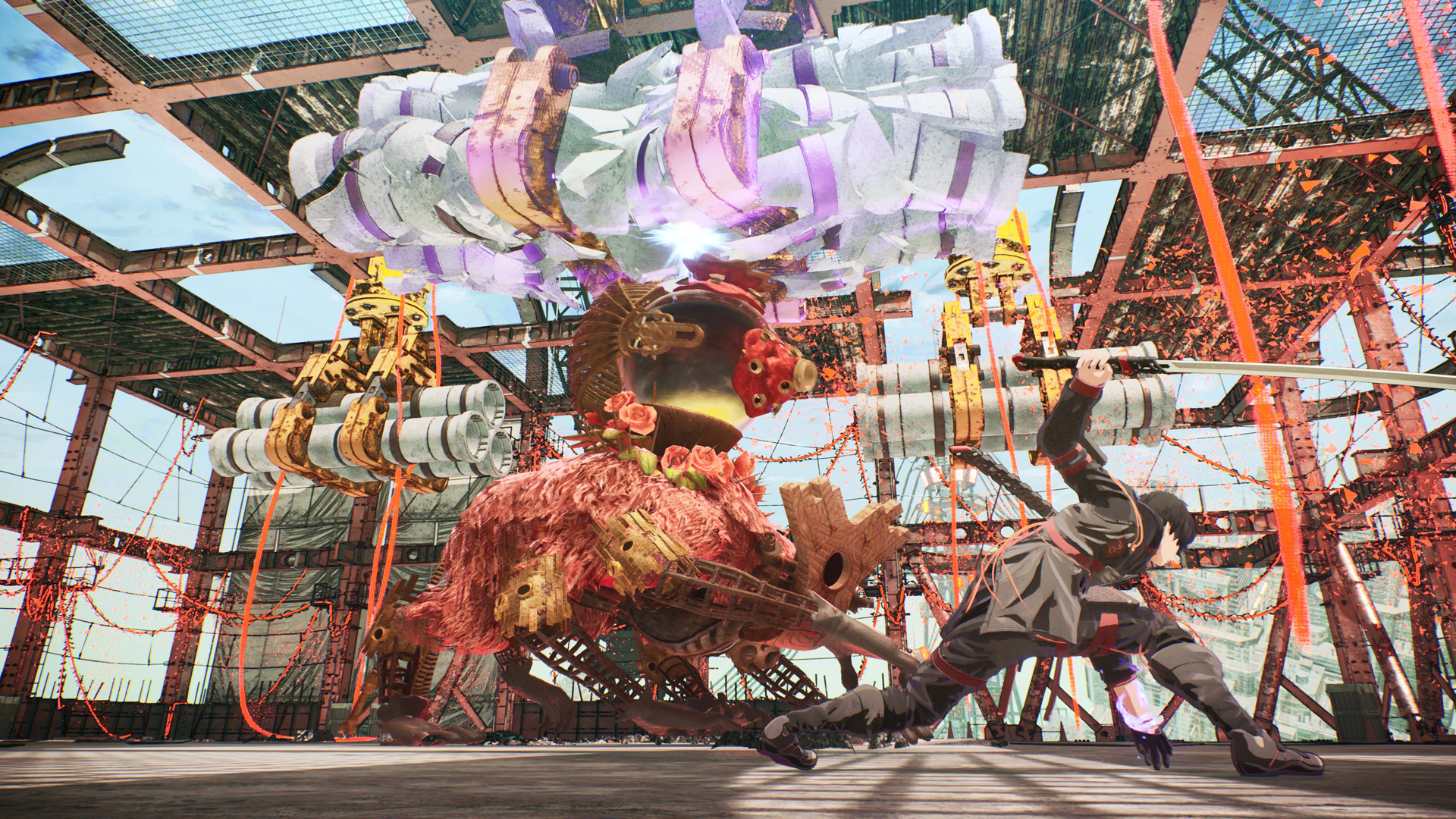
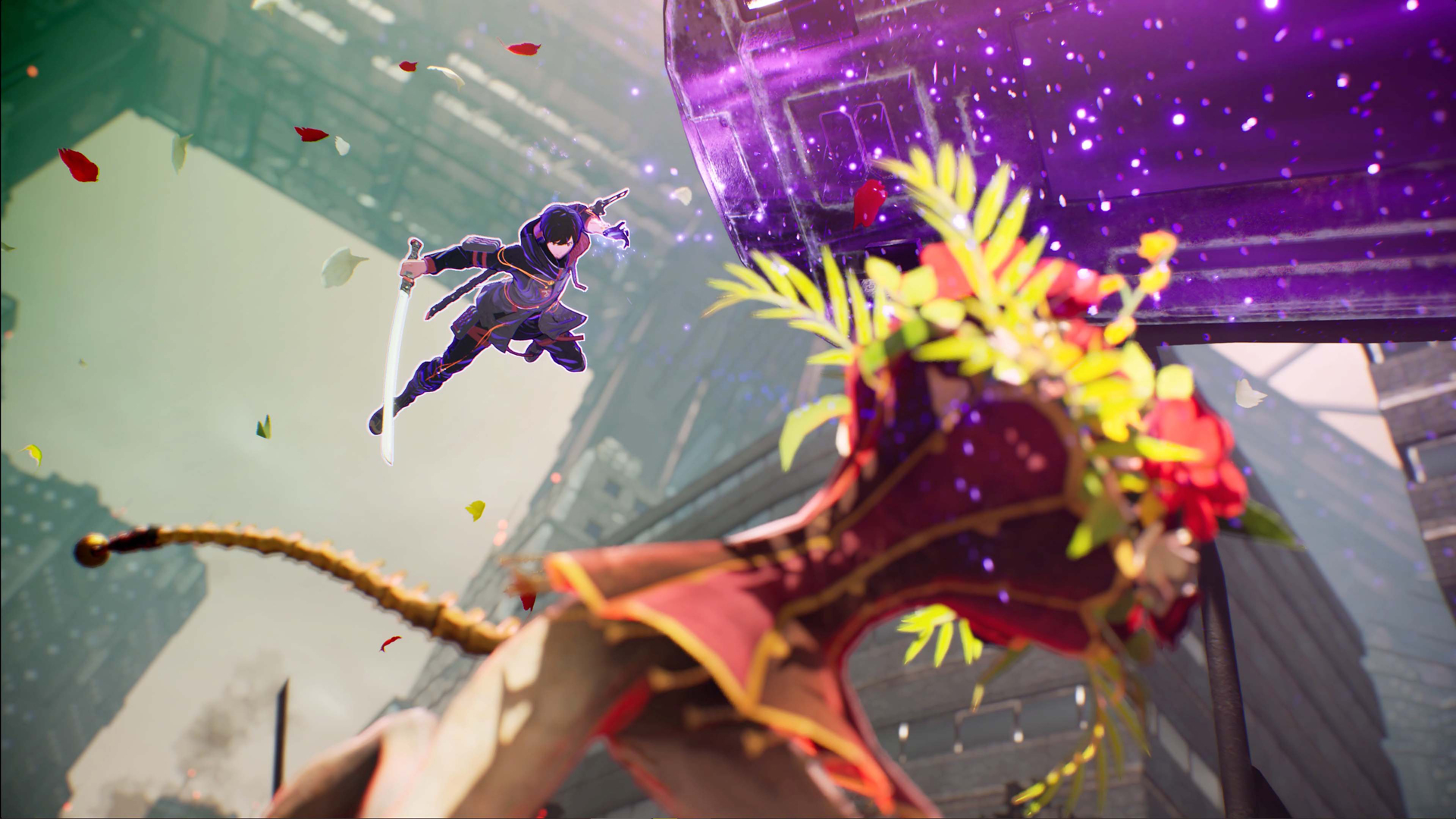
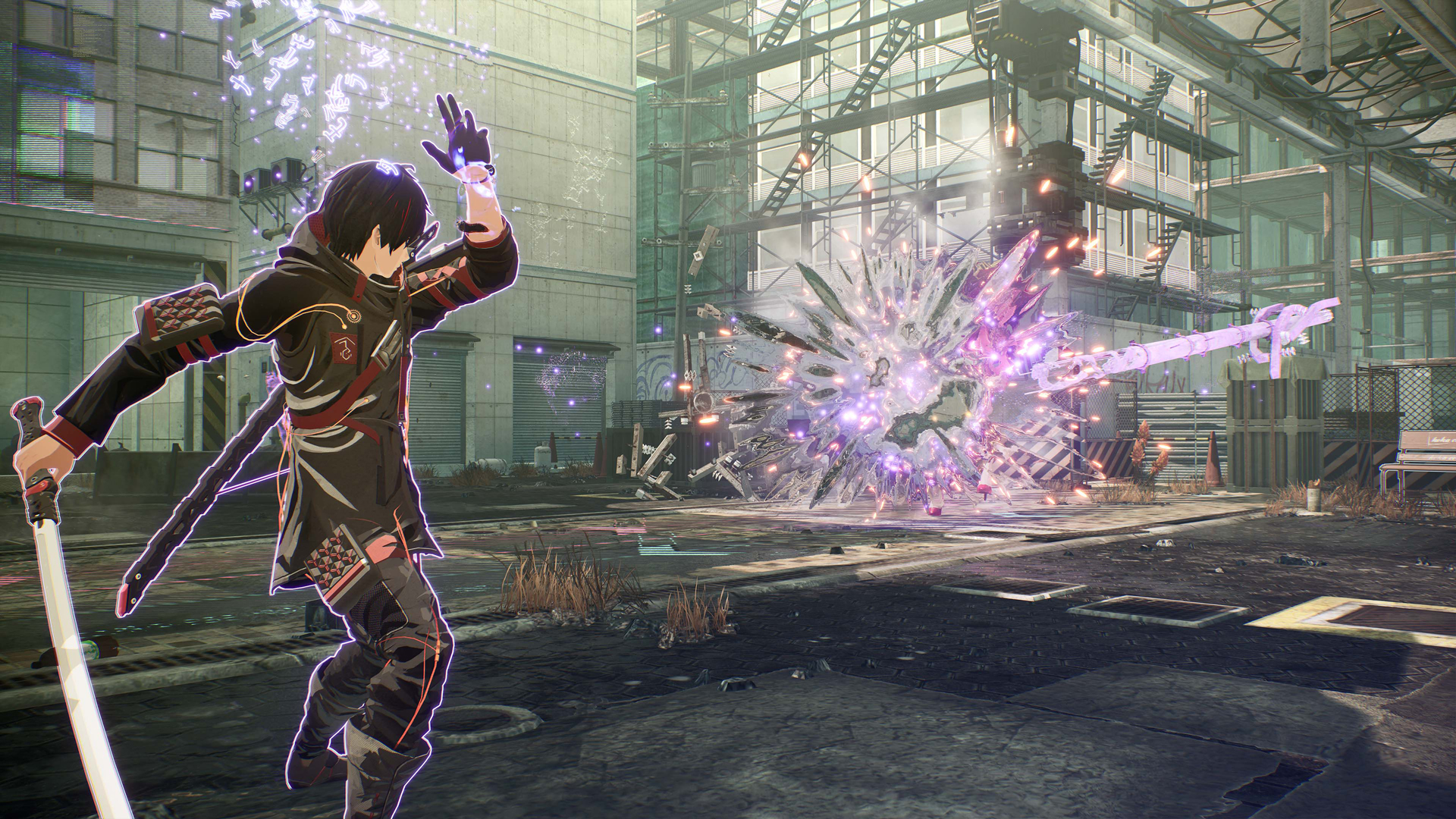
"Thanks to the high processing powers of the hardware in the next generation, the game will feature high frame-rates"
Kenji Anabuki, game director
As for the second area of focus, Anabuki is committed to balancing psychokinesis and conventional weapon attacks so that you'll feel empowered to experiment, playing around with its systems to find new and entertaining ways to take on Scarlet Nexus' variety of enemy types.
"We feel that Scarlet Nexus, as an action RPG, must provide the exhilarating feeling from using weapon / melee attacks," he says. "On top of that, the psychokinetic attacks, when used alongside weapon attacks, will create a very special combination unique to Scarlet Nexus. Once you get hold of the battle system it looks exceptionally cool."
The studio is particularly focused on that last point; it really does want Scarlet Nexus to look exceptionally cool in action. While it's working to create a weighty real-time combat system, it's also keen to strip unnecessary complexity out of its systems in an effort to maintain spectacle, as Anabuki explains. "In battles, the psychokinesis ability Yuito possesses can be easily controlled by simple button sequences. By interacting with surrounding objects, you can use them to simply hit your target, but also to experience a new action style of swinging things at enemies or crushing them with objects."
Scarlet Nexus has heavily stylized combat within its contained arena spaces. The evocative enemy types come at Yuito fast and furiously, forcing you to consider your opportunities. To survive encounters you'll need to effectively switch between normal weapon attacks with your blade and psychokinesis, hurling anything from potted plants to vehicles at the encroaching mutants to create deadly combos. Anabuki teases that, should the conditions be right, "you could also direct your psychokinetic attacks straight at them", although he was unwilling to go into any further detail just yet.
A next-gen release
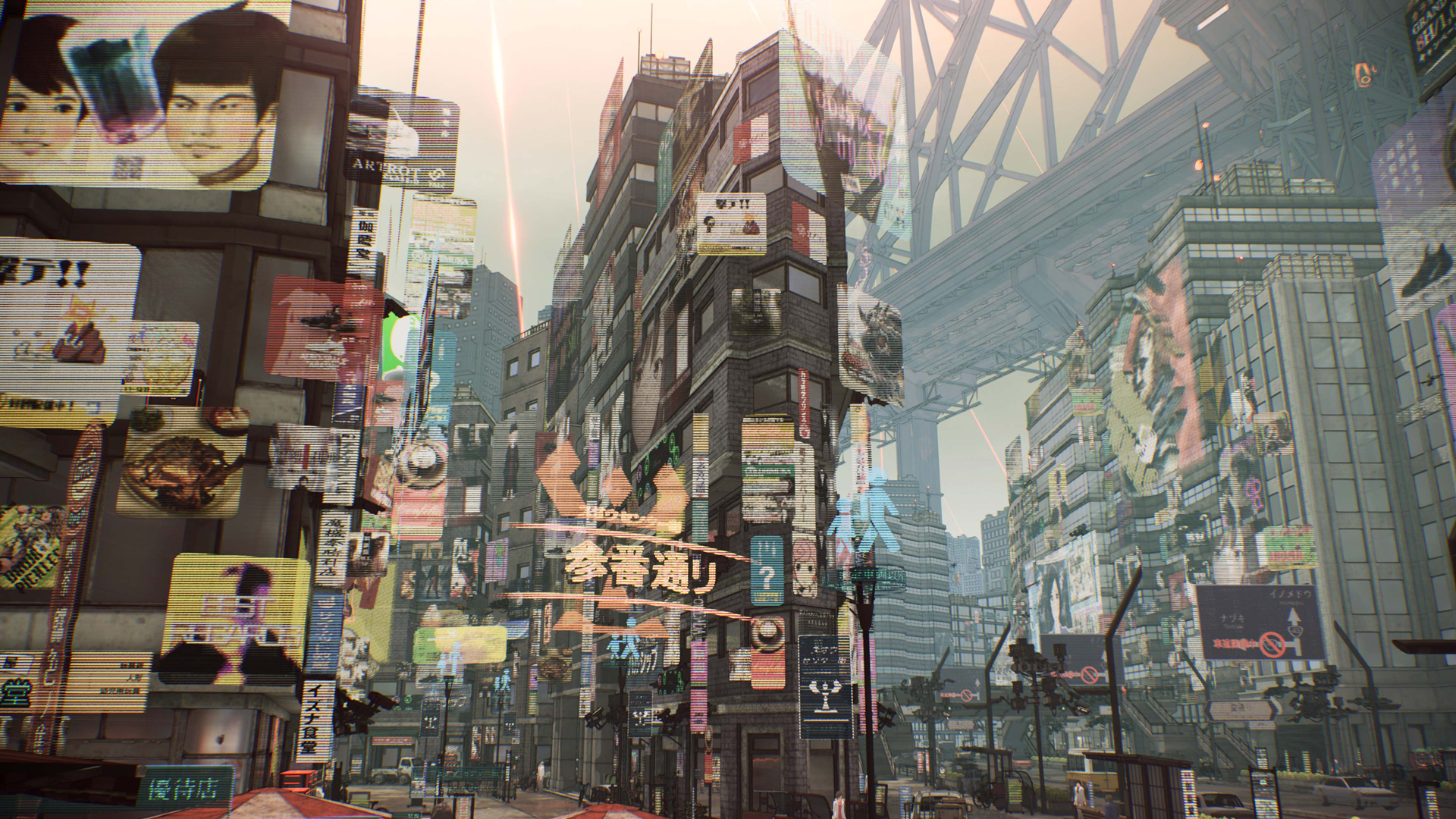
Bandai Namco is yet to give Scarlet Nexus a release date, although with the action-RPG in development for PS5, Xbox Series X, PC, PS4, and Xbox One there's still some time to go yet. For now, the creative director is only willing to tease just how Scarlet Nexus will utilise the power of the next-generation consoles.
"Thanks to the high processing powers of the hardware in the next generation, the game will feature high frame-rates, while having very demanding processes related to character representation we wanted to achieve. Moreover, the shortening of loading times will definitely give the player a more immersive game experience than ever before."
GamesRadar+ is exploring the games that are helping to shape 2020. For more, click through to our Big in 2020 coverage hub.

Josh West is the Editor-in-Chief of GamesRadar+. He has over 15 years experience in online and print journalism, and holds a BA (Hons) in Journalism and Feature Writing. Prior to starting his current position, Josh has served as GR+'s Features Editor and Deputy Editor of games™ magazine, and has freelanced for numerous publications including 3D Artist, Edge magazine, iCreate, Metal Hammer, Play, Retro Gamer, and SFX. Additionally, he has appeared on the BBC and ITV to provide expert comment, written for Scholastic books, edited a book for Hachette, and worked as the Assistant Producer of the Future Games Show. In his spare time, Josh likes to play bass guitar and video games. Years ago, he was in a few movies and TV shows that you've definitely seen but will never be able to spot him in.


